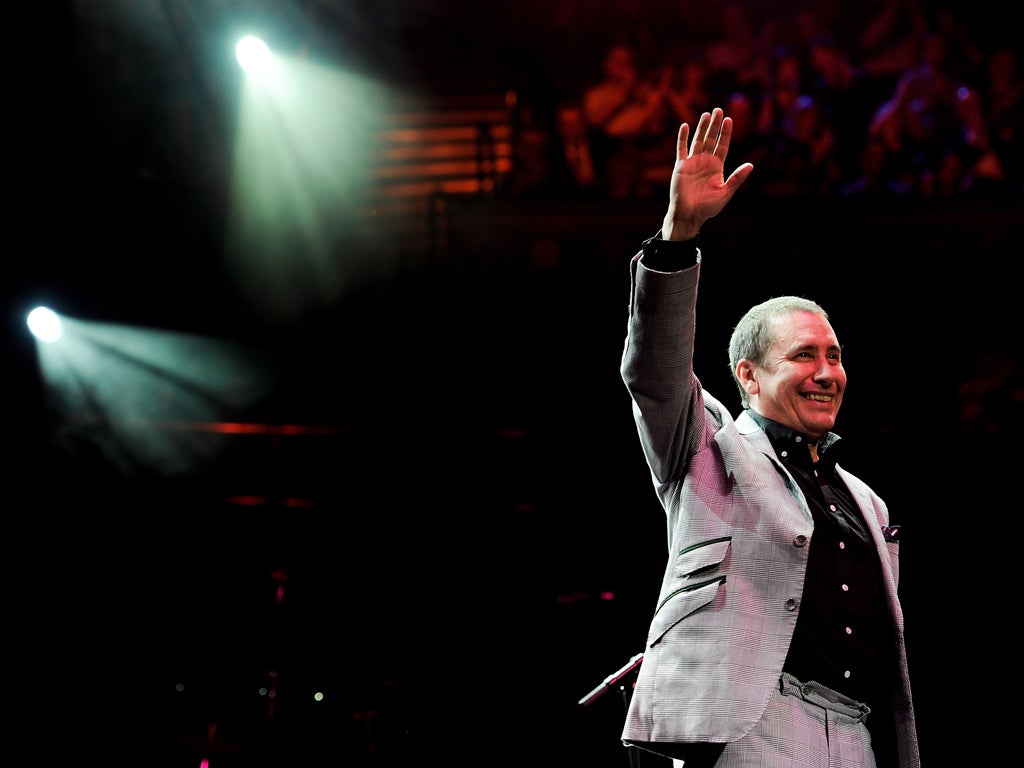Classical and pop audiences can mix
There’s nothing wrong with trying to make classical music more accessible to younger audiences


Your support helps us to tell the story
From reproductive rights to climate change to Big Tech, The Independent is on the ground when the story is developing. Whether it's investigating the financials of Elon Musk's pro-Trump PAC or producing our latest documentary, 'The A Word', which shines a light on the American women fighting for reproductive rights, we know how important it is to parse out the facts from the messaging.
At such a critical moment in US history, we need reporters on the ground. Your donation allows us to keep sending journalists to speak to both sides of the story.
The Independent is trusted by Americans across the entire political spectrum. And unlike many other quality news outlets, we choose not to lock Americans out of our reporting and analysis with paywalls. We believe quality journalism should be available to everyone, paid for by those who can afford it.
Your support makes all the difference.When Sir John Tavener died recently, the obituaries recounted how he was signed up in the 1960s by The Beatles’ record label, Apple. It did make me wonder whether such an easy collaboration between pop and classical would happen now.
The possibility of closer liaisons between the two genres formed part of a conversation I had with fellow members of a group set up by the Universal Music chief Max Hole to find ways to encourage younger music consumers to try classical recordings and concerts. One member of the group was the brilliant and prolific violinist Nicola Benedetti. She mentioned that she was a good friend of fellow Scottish music star Emeli Sande, the latter of course from the pop end of the spectrum.
Why, I wondered, could they not perform on the same bill? Ok, there might need to be a bit of negotiation over who gets top billing, but what an opportunity for Sande fans to witness a charismatic, virtuoso violinist - and for Benedetti fans to see one of today’s leading pop stars. Moving on from these two megastars, why must the support act for any rock star always be another pop act? Why not a classical act? Record companies and gig promoters could make this happen so easily. It just takes a little imagination.
The thinking among those trying to make classical music more accessible to younger audiences is to have screens and light shows at concerts, and present the performances in a more relaxed environment. There’s nothing wrong with any of that. Looking at the way concerts are presented is a vital part of attracting new audiences to the art form. But how much simpler it would be in terms of accessibility to put pop and classical on the same bill. Yet it virtually never seems to happen. Pop culture and so-called high culture are not meant to mix. But mix they must.
Come to that, why must pop shows on TV be exclusively pop shows? Jools Holland’s ‘Later’, which whizzes from interesting act to interesting act, all doing a couple of numbers each, would be ideal to mix pop and classical. With Holland himself a jazz pianist, and executive producer Marc Cooper a man of eclectic musical taste, it’s a wonder that this fairly mild venture into music TV experimentation isn’t already happening. It’s such an opportunity to bring the best of contemporary classical artists to an audience of largely pop and indie music viewers. There is no law of broadcasting that classical music on TV has to begin and end with the Proms, and no law of music that classical should always be compartmentalised and kept apart from pop.
From where I stand, it’s all music.
An awful lot of priggish gig-goers
I felt a little uncomfortable, indeed priggish, when I mentioned here last week that it can be annoying when people talk throughout rock gigs, usually stopping the chat only to push past you to the bar. Well, to judge from your emails there are an awful lot of uncomfortable, priggish gig-goers out there. Many of you seem to share my bafflement that people can buy expensive tickets for a gig and actually stand with their backs to the stage chatting through all of it. I leave the last word to reader Patrick Elliott, who says: “There ought to be a sign up outside every gig saying, ‘If you’re going to talk to mates all night long stay in the bar’.’”
What does the original Jane Banks have to say?
Emma Thompson and Tom Hanks have done a lot of talking about the late Walt Disney for their film Saving Mr Banks, about the making of Mary Poppins. But I’m rather more interested in a short interview in the current issue of Variety with the former English child actress Karen Dotrice, now 58, who at the age of eight played Jane Banks in the original film, and actually knew the movie mogul.
She recalls: “Uncle Walt... was very enthusiastic and generous. He flew me, my two sisters and my mum over from England. He got us a home up in the canyons with an indoor heated swimming pool and gave me the use of the private plane on the weekends so we could fly to his Santa Barbara ranch.” Generous old Uncle Walt. Sounds like a character from one of his own films.
d.lister@independent.co.uk
twitter.com/davidlister1
Join our commenting forum
Join thought-provoking conversations, follow other Independent readers and see their replies
Comments